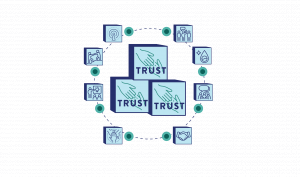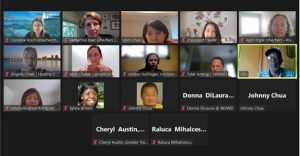Creating Connection Between Community and Water Utility Leaders – What We’re Learning
So many important decisions about water happen at the local level: Where to invest in green infrastructure or water efficiency? How to reduce sewer overflows to local creeks? What are the best strategies to eliminate water shut offs? Because water utilities are k ey players in those decisions, creating and maintaining trust between water utilities and community organizations is critical for successful decision making and investing that leads to safe, clean and sustainable water for all.
ey players in those decisions, creating and maintaining trust between water utilities and community organizations is critical for successful decision making and investing that leads to safe, clean and sustainable water for all.
Over the last several years, River Network has teamed up with the WaterNow Alliance, with support from Spring Point Partners, to learn from successful community-utility partnerships around the country about how they are creating, maintaining and restoring authentic and trusting relationships. The results are synthesized in our joint report, Building Blocks of Trust: Creating Authentic and Equitable Relationships Between Community Organizations and Water Utilities. The report is built around eight key foundations of trust, specific steps to take by both partners, and case studies focusing on how to apply these best practices in new places.
Currently, we’re deploying these building blocks of trust as part of a trust building support initiative, working with water utilities and community organizations in the following four communities:
- Fulton, Arkansas – the Ad Hoc Committee on Operations and Fulton Water Works
- New Orleans, Louisiana – Healthy Community Services and New Orleans Water and Sewerage Board
- Superior, Arizona – Town of Superior Queen Creek Working Group and Arizona Water Company
- Walnut, California – the Chinese American Association of Walnut and the Walnut Valley Water District
All of these water utility-community group partners are seeking to better connect with each other and build the skills and leadership needed for more trusting relationships. Each pair has identified several of the Building Blocks of Trust on which to focus, and River Network and WaterNow are providing training, support, connection to additional resources, and convening the groups together to dive deeper into practices that are of common interest between them.

Recently, we gathered to discuss the trust building block, Deepening Community Understanding of Utility Roles and Responsibilities. We learned in our research that community organizations with a deep grasp of what the utility does allows these groups to hold the utility accountable, identify positive aspects of the utility operations and be empathetic to challenges facing utilities. Steps like including community members on utility boards and including utility staff in community group meetings goes a long way to better understanding what each is facing and responsible for. During our call we heard from Angela Chalk at Healthy Community Services and Jenn Clarke with the City of Richmond Department of Public Utilities who both shared their experiences, followed by discussion from all of our cohort. Common themes that emerged included:
- Utility-Community relationships grow into collaborative partnerships when they are true two-way streets where each partner comes to the table committing to “trust and to be trustworthy;”
- True collaborations go deep – for example, they work together on funding proposals, not just letters of support;
- Robust social media programs can be an important way for the utility to get information to the community, however nothing can replace in-person direct engagement to deepen the community’s understanding of utility roles and responsibilities. Collaborating with a trusted community partner is a key way to for the utility to make those connections with the broader community;
- Collaborative partnerships form when utilities and community groups bring solutions to the table along with problems that need addressing.
As always we’re inspired by the groups we work with and their dedication to strengthening relationships and bridging the gap between community and water utility leaders. Support for this cohort of groups will continue through 2022. We continue to learn that this work takes time, and we all balance the sense of urgency to improve our communities and waterways with the need to “move at the speed of trust.”





